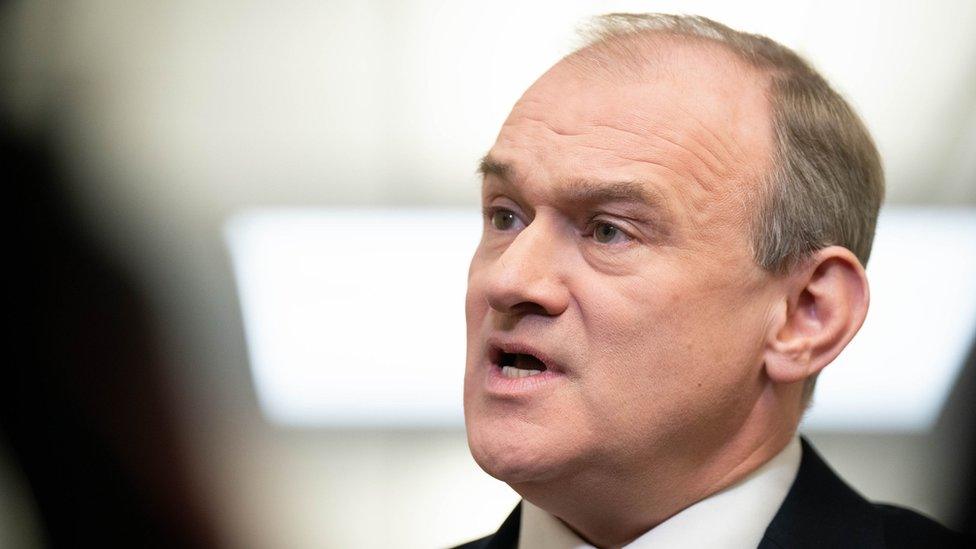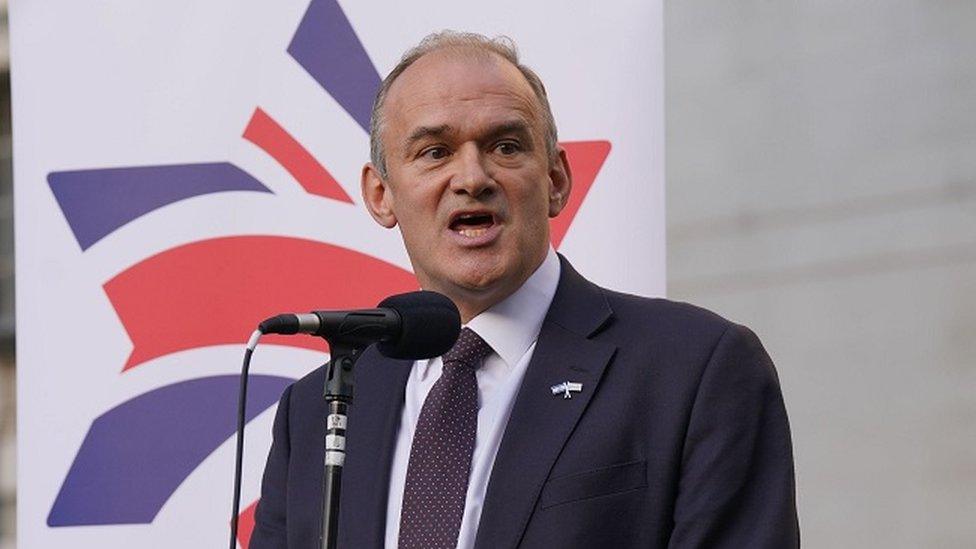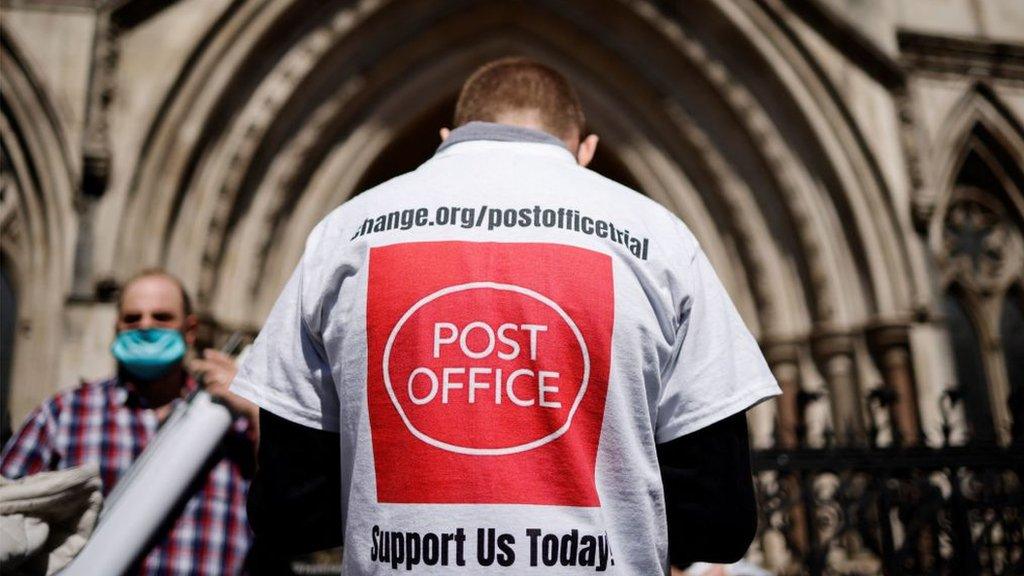Ed Davey was advised to meet Post Office campaigner Alan Bates to avoid bad publicity
- Published

Sir Ed Davey was advised as postal minister in 2010 to meet Post Office campaigner Alan Bates to avoid bad publicity over the Horizon scandal, the BBC has discovered.
Sir Ed, now Lib Dem leader, has faced questions in recent weeks over why he initially refused to do so.
He did meet the campaigner five months later, and has said he regrets not doing so sooner.
Documents show he was advised to meet Mr Bates for "presentational reasons".
Officials at the business department, which is responsible for the Post Office, warned about possible headlines such as "government minister refusing to meet victims".
However, Sir Ed told the BBC's Today programme it "wasn't the case" that he had agreed to meet Mr Bates because of potential bad publicity.
"That's what the officials put in the submission to me just before the meeting, but I wanted to meet him because after his second letter, I felt I should hear his concerns," he said
Sir Ed said he was the first minister to meet Mr Bates and added he took his concerns "very seriously". "When I put those concerns to the Post Office, concerns about the Horizon IT system, I'm afraid I was lied to," he said.
With a general election coming up, Sir Ed said he had not considered stepping down as Liberal Democrat leader.
"When I go out there campaigning, we're finding incredible results in seats that only we can beat the Conservatives in," he said. "The party is very keen for us to fight this election really hard under my leadership."
Between 1999 and 2015, the Post Office prosecuted hundreds of sub-postmasters and mistresses after faults with the Horizon accounting system made it look like money was missing.
As postal affairs minister between May 2010 and February 2012, Sir Ed oversaw the Post Office, which is wholly owned by the government but maintains an arm's length relationship when it comes to day-to-day operations.
Former sub-postmaster Mr Bates, who set up the Justice for Subpostmasters Alliance, to campaign for wrongful convictions to be overturned, wanted to discuss Horizon, which at the time the Post Office maintained was not faulty.
His initial request for a meeting in May 2010 was rejected, but Sir Ed did later meet him in October that year.
'Avoid any commitment'
A note for him drawn up by officials at the business department ahead of the October meeting said journalists had been looking into the story, and the meeting was recommended "against the background of potential publicity".
In the note, released to the BBC under Freedom of Information laws, the civil servants advised Sir Ed to "continue to express full confidence in the integrity and robustness of the Horizon system".
It also gave him a list of potential "elephant traps" for the discussion, which included advice to "avoid any commitment to adopting any of" the objectives put forward by Mr Bates's campaign group.
He was advised to "avoid committing to set up an independent/external review of Horizon," with the note adding any such review would be "expensive" and "time-consuming".
The note advised establishing at a "very early stage" in the meeting whether Mr Bates was considering legal action against the Post Office, so that Sir Ed could adopt an approach of avoiding commenting on impending legal matters.
'Operational' matters
Writing in the Guardian newspaper last week, Sir Ed said officials had advised him not to meet Mr Bates when he first became a postal affairs minister in May 2010, because the Post Office was owned "but not run" by the government.
"He wrote again urging me to reconsider, and I did then meet him in October," he added.
The note obtained by the BBC says Mr Bates's first request for a meeting was rejected "on the grounds that the issues raised were operational and contractual matters for" the Post Office.
It warns that Mr Bates's "second (more confrontational) letter" was "followed by reports that Channel 4 were planning to run a news item" and that this second request for a meeting was accepted "against the background of potential publicity".
Sir Ed is not the only politician to face questions about his response to the scandal.
Several Conservative and Labour MPs held the postal affairs brief while the scandal was coming to light, and the Lib Dems have accused the Conservative-majority government in place since 2015 of being slow to compensate victims.
"Ed has said how sorry he is that he did not see through the Post Office's lies, and that it took him five months to meet Alan Bates," the Lib Dem spokesperson added.
A spokesperson for the business department said: "We pay tribute to the incredible campaign that Alan has led and his determination to get justice for the thousands of innocent postmasters affected by this scandal."
The department was working to speed up compensation to those wrongfully convicted and is bringing forward legislation to overturn the convictions of those wrongly prosecuted, the spokesperson added.
Related topics
- Published10 January 2024

- Published7 February 2024

